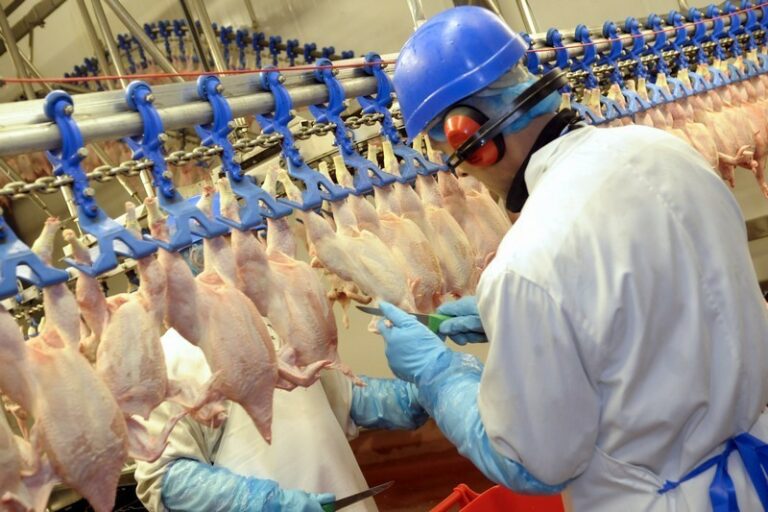The government has today named and shamed nearly 180 employers for underpaying more than 9,000 minimum wage workers by £1.1 million and Moy Park was one of them.
The government said the Northern Ireland-based poultry integrator had failed to pay £33,547.57 to 338 workers.
“As soon as this isolated incident of underpayment was identified we apologised to those affected and ensured reimbursement,” said a Moy Park spokesman. “As a responsible employer we have taken steps to ensure this issue cannot reoccur.”
As well as recovering backpay for 9,200 workers, the government also fined the employers a total of £1.3 million in penalties for breaking national minimum wage laws. The most prolific offending sectors in this round were retailers, hospitality businesses and hairdressers.
It comes ahead of the next rate rise on 1 April, when the National Living Wage will go up from £7.50 to £7.83 per hour. Apprentices under the age of 19 and those in the first year of their apprenticeship will benefit from a record 5.7% rise.
Later this month the Department for Business, Energy and Industrial Strategy (BEIS) will launch a campaign to raise awareness of the new rates and encourage workers to speak to their employer if they think they are being underpaid.
Business Minister Andrew Griffiths said: “There are no excuses for short-changing workers. This is an absolute red line for this government and employers who cross it will get caught – not only are they forced to pay back every penny but they are also fined up to 200% of wages owed.”
This 14th naming round comes after the government published its Good Work plan last month, which announced the right to a payslip for all workers. The new law is likely to benefit around 300,000 UK workers who do not currently get a payslip.
For those paid by the hour, payslips will also have to include how many hours the worker is paid for, making pay easier to understand and challenge if it is wrong. The move is part of the government’s Industrial Strategy, the long-term plan to build a Britain fit for the future by helping businesses create better, higher-paying jobs in every part of the UK.
Since 2013 the scheme has identified more than £9 million in back pay for around 67,000 workers, with more than 1,700 employers fined a total of £6.3 million. The government has also committed £25.3 million for minimum wage enforcement in 2017 to 2018.
Employers who pay workers less than the minimum wage not only have to pay back arrears of wages to the worker at current minimum wage rates but also face financial penalties of up to 200% of arrears, capped at £20,000 per worker.


